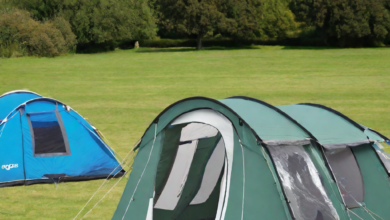A Complete Guide to DNR Camping
DNR, or Department of Natural Resources, managed lands provide incredible camping opportunities across the United States. State-run DNRs oversee millions of acres of public parks, forests, waterways and wilderness areas prime for outdoor recreation. This guide will cover everything you need to know aboutPrimitive and DNR-managed campground options, tips for planning your DNR camping adventure, and how to have an amazing experience.
What is DNR Land?
DNR stands for Department of Natural Resources, which is a state-level agency dedicated to managing lands like state parks, lakeshores, trails, game areas, recreation sites and more. Their mission is to conserve the incredible natural resources within their region and manage public lands for outdoor enjoyment and sustainable use.
DNR-managed land offers both modern campground facilities as well as vast areas of primitive backcountry camping. This presents a variety of options for RVs, tents and groups seeking both convenience and getting far off the grid.
Types of Camping on DNR Land
DNR properties provide all kinds of camping experiences. Key options include:
Campgrounds – These designated camping areas provide amenities like restrooms, showers, electrical hookups and dump stations while still immersing you in nature. Sites range from RV pull-throughs to wooded tent sites and rustic cabins.
Backcountry – DNR forests, natural areas, and river corridors allow dispersed camping away from developed sites and other groups. Permits, fees and restrictions vary.
Group camps – Reserve clustered sites for large gatherings of family and friends. Enjoy communal spaces perfect for reunions.
Specialty camps – Many DNRs have sites catering to certain activities like horse camping, hunting camps and ORV/ATV camping areas.
The extensive DNR properties within each state offer endless camping variety.
Benefits of Camping on DNR Land
Beyond plentiful options, camping on DNR land comes with many advantages:
- Close access to hiking, hunting, fishing, boating, and sledding trails
- Ability to enjoy secluded backcountry camping away from crowds
- Region-specific activities like rockhounding, panning for gold, and wildlife viewing
- Education programs, guided hikes and interpretive events
- RV sites/facilities if desired as an alternative to tent camping
- Peace of mind with increased security at patrolled properties
- Affordable rates and often free backcountry camping
You get the infrastructure of a traditional campground coupled with expansive natural areas to explore.
Finding DNR Camping Options in Your Area
Luckily various resources make finding DNR camping options straightforward:
- State DNR websites detail all their managed lands and recreational activities available. They share maps and campground specifics like fees, reservations, and equipment needed.
- Big aggregator sites like Recreation.gov, ReserveAmerica and Hipcamp list bookable DNR campsites and permits.
- For backcountry camping, contact the regional land office to learn dispersal site options and rules.
- State tourism board sites recommend the best DNR campgrounds in their area along with highlights.
- DNR social media accounts and visitor center/ranger station provide guidance. Describe your ideal camping scenario and they can suggest locations to consider across the state.
- Forums like FreeCampsites.net have user reviews of DNR campgrounds and hidden gem areas.
Tips for Camping DNR Lands
Follow these tips for a stellar off-grid DNR camping experience:
- For backcountry camping, pack in everything you will need. Make sure to bring a paper map as cell service is unlikely.
- Research wildlife cautions like bear activity and follow all food storage rules.
- Study the trail map and terrain to ensure your fitness level matches the hike to your site.
- Pack out all garbage. Whatever is carried in must be carried out.
- Confirm with the DNR if campfires are allowed and any restrictions.
- Follow all camping permit directives like displaying on your site, renewal dates, etc.
- Use Leave No Trace principles to minimize your environmental impact.
- Look into equipment rentals nearby if needed for activities like canoeing or horseback riding.
- Charge electronics and cameras before your trip – recharging ability will be limited.
Enjoying Your DNR Camping Destination
Once set up, DNR properties offer an abundance of things to do. Enjoy:
- Kayaking, canoeing, rafting and paddling on rivers and lakes
- Excellent fishing with ample catch limits
- Guided educational hikes led by DNR rangers
- Mountain biking on extensive trail systems
- Off-roading on ORV/ATV trails
- Wildlife viewing and bird watching from blinds
- Horseback riding on picturesque trails
- Rock climbing at premier bouldering locations
- Seasonal events like naturalist programs and snowshoeing
The recreational possibilities on DNR public lands are virtually endless. Plan ample extra time just to take advantage of all they have to offer!
With breathtaking scenery, endless adventure, and facilities ranging from remote to luxurious, DNR camping has something for every type of camper. Use this guide to start planning your next camping getaway on America’s incredible public lands!




